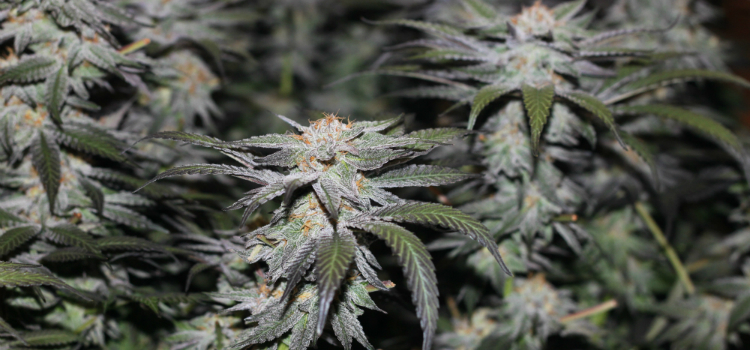A strange South Dakota law is drawing renewed attention this year amidst confusion over how Native tribes can grow and distribute cannabis. Passed in 2001, the South Dakota law prohibits the “internal and physical possession, distribution, and manufacture of marijuana” by all non-Natives within the state, with exceptions for Natives consuming on tribal land.
The law was challenged and brought to the Supreme Court back in 2004, when police stopped a man in traffic, found him in possession of a scale, and pressured him into consenting to a urine test. He failed the test and was slapped with a criminal charge for internal possession.
The court has traditionally held that once a substance is consumed, it no longer falls under the realm of “possession.” But the South Dakota legislature explicitly amended the law with a new definition of a controlled substance to make prosecuting for internal possession possible.
In the face of all precedents to the contrary, the Supreme Court upheld the lower court’s judgment. To clarify the law, Justice Steven L. Zintner wrote, “Possession may now occur if a person knowingly possesses an altered state of a drug or substance absorbed into the human body.”
According to the ruling, you could get slapped with a possession charge just for having enough marijuana left in your system to fail a urine test.
But that was 2004. Now, this bizarre law returned to the forefront when South Dakota’s Flandreau Sandee Sioux Tribe embarked on its first pot-growing venture in June — despite warnings from Republican state Attorney General Marty Jackley about the potential consequences of the internal possession law. Specifically, he warned non-Natives who might go onto tribal land and consume marijuana that having marijuana in your system, anywhere within the state of South Dakota, was illegal.
The law goes on to say: “The violation … exists in either the jurisdiction in which the substance was ingested, inhaled, or otherwise taken into the body, or the jurisdiction in which the substance was detected in the body of the accused.” Essentially, law enforcement can choose the jurisdiction under which to prosecute you: where you ingested the marijuana, or where it was detected. And if it’s detected within the state of South Dakota? Congratulations, you’re now a criminal.
However, the potential ramifications of the law extend far beyond cannabis growing and distribution operations on Native land. If someone consumes marijuana legally in another state — recreationally in states like Oregon, Washington, and Colorado, or medicinally in states like Nevada or Minnesota — that person could, theoretically, get slapped with a Class 1 misdemeanor just for crossing state lines with trace amounts of marijuana in their system, even if it was prescribed by a doctor.
South Dakota law enforcement is fully embracing its duty to police the internal possession law. Though officers can’t force someone to submit to a drug test, they can request one once they have probable cause. And while legally police need voluntary consent in order to extract a urinalysis, South Dakota law enforcement is not above threatening and intimidating detainees to get one.
In 2003, Dave Johnson of Huron, South Dakota was arrested for possessing paraphernalia in the form of a small pipe. He was then coerced into taking a urine test, which he failed, and was hit with an additional charge for internal possession.
“The cops took me downtown and said if I didn’t piss for them, they’d … take it by force,” Johnson said. “They were going to take it forcefully — that’s what they told me. So I said okay.”
But attorney Don Covey warns citizens not to consent anyway. “You make them get their warrant. Maybe they won’t get it, or maybe by the time they do get it, the substance is metabolized.”
The advice to stand your ground against police demands was reiterated by Johnson’s attorney, Ron Volesky. “If you refuse to consent and they get a court order and take a sample against your will, you can challenge it. You can file a motion to suppress the evidence for lack of probable cause.”
Source:
http://stopthedrugwar.org/chronicle/2015/nov/11/south_dakota_law_can_get_you_bus
Photo Credit: Leslie J. Clary
Get daily cannabis business news updates. Subscribe
End
